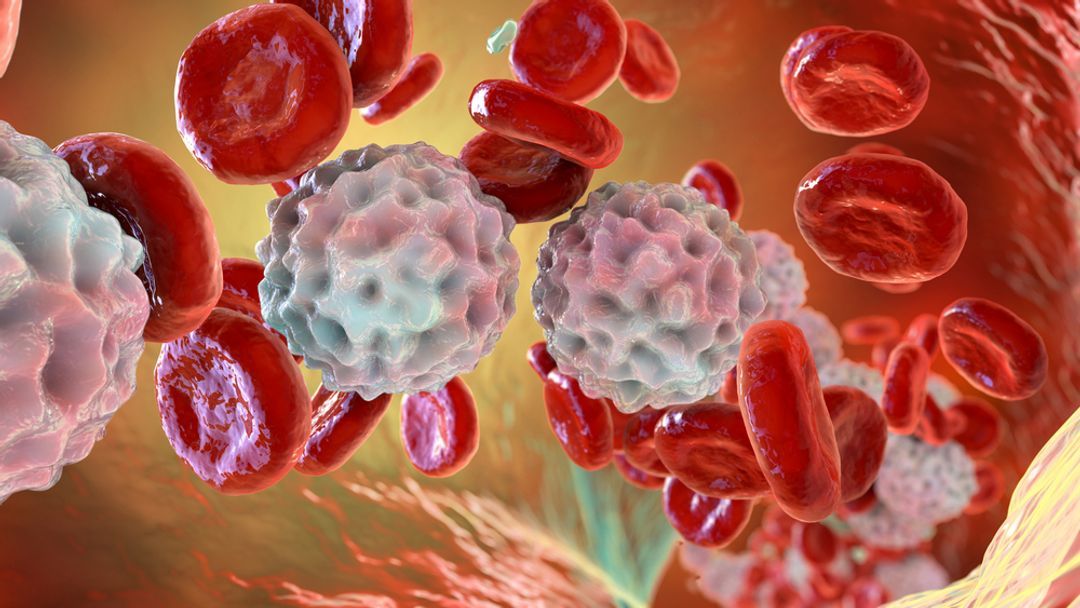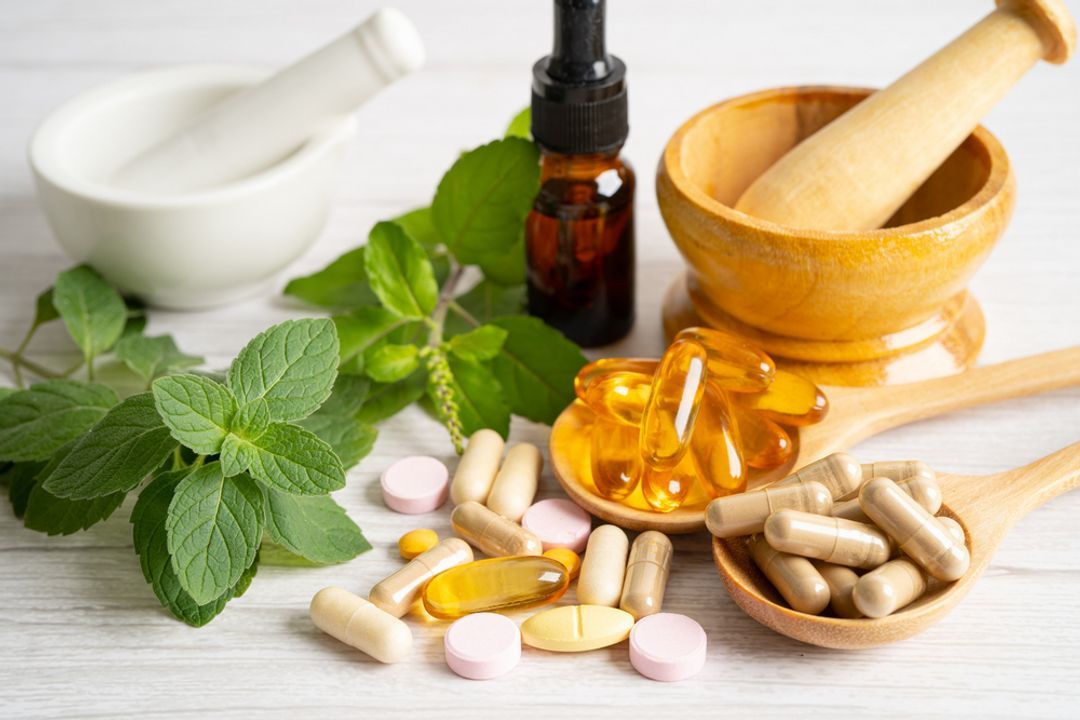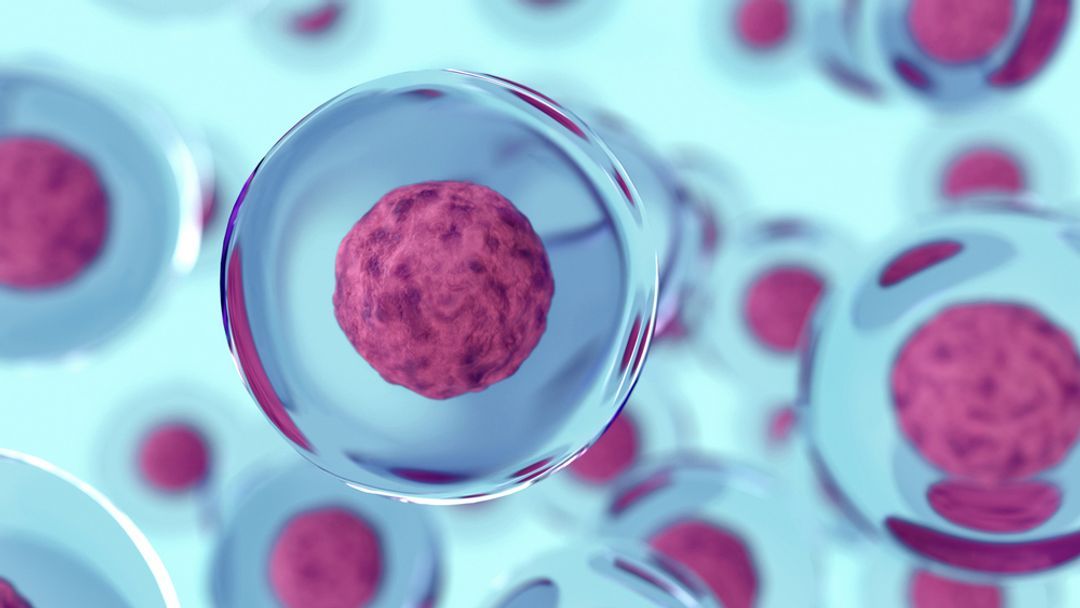How to Reduce Inflammation in the Body Fast
What is the fastest way to reduce inflammation in the body? How do you stop inflammation fast? Click here to learn how to treat chronic inflammation.
Inflammation often gets a bad rep, and sometimes, undeservedly so. There are times when inflammation is actually a good thing, acting as the body’s natural protective response to fight internal or external damage, known as acute inflammation.
For instance, when you have a cut, bruise, injury or viral infection, the immune system triggers an inflammatory response to facilitate healing. Such inflammation is temporary, typically lasting a few days or until the ailment has been remedied.
However, when inflammation persists past the recovery period and turns chronic, it becomes a problem, leading to several health conditions, including diabetes, heart disease, autoimmune disorders, dementia and even cancer. Preventing chronic inflammation should be our number one goal, after which comes taking necessary action to try to reduce it once it is already present.
Although there is no quick-fix or one-size-fits-all solution to treating chronic inflammation, incorporating small, sustainable changes in your daily lifestyle can kickstart the healing process and reduce chronic inflammation in the long term.
This article explores how to protect yourself from chronic inflammation and improve overall well-being with manageable and practical steps. Adopt these strategies to reduce inflammation quickly and safeguard your health.
Signs of Chronic Inflammation
 A build-up of toxins and poor lifestyle choices can cause an overactive immune system, causing it to perpetually produce inflammatory cells, even when there is no sign of illness or injury, and attack healthy organs and cells. This cascade of chemical reactions can be much more subtle and slow to develop, taking several months or years and making symptoms difficult to spot.
A build-up of toxins and poor lifestyle choices can cause an overactive immune system, causing it to perpetually produce inflammatory cells, even when there is no sign of illness or injury, and attack healthy organs and cells. This cascade of chemical reactions can be much more subtle and slow to develop, taking several months or years and making symptoms difficult to spot.
Due to their covert nature, it’s easy to dismiss the signs of chronic inflammation as a natural and inevitable part of ageing or a ‘new normal’ that must be tolerated or eventually disappear on its own. However, the following symptoms might be a sign of chronic inflammation and shouldn’t be ignored:
-
Skin changes
-
Frequent infections
-
Chronic fatigue
-
Muscle and joint pain
-
Weight gain or loss
-
Metabloic health imbalances, e.g. raised blood glucose
-
Chronic abdominal pain and indigestion
-
Mouth sores
-
Insomnia
-
Frequent mood swings and poor emotional well-being
How to Reduce Inflammation Fast
The process and time period for reversing inflammation differs for each individual, depending on the cause and severity. However, there are some proven strategies that anyone can do to support the immune system and help lower inflammation quickly. Consider adopting the following lifestyle changes.
Prioritise sleep
 Consistent good-quality sleep is the cornerstone of a healthy immune system, while routinely getting inadequate sleep will send it into overdrive, causing excessive inflammation and reducing the speed of healing, according to a 2020 study published in the Frontiers of Neurology [1].
Consistent good-quality sleep is the cornerstone of a healthy immune system, while routinely getting inadequate sleep will send it into overdrive, causing excessive inflammation and reducing the speed of healing, according to a 2020 study published in the Frontiers of Neurology [1].
Poor sleep also negatively affects the levels of the stress hormone cortisol, as well as leptin and ghrelin hormones that are in control of appetite.
According to the Center for Disease Control and Prevention (CDC), you should aim for seven to nine hours of sleep each night [2]. Additionally, sleep quality is equally important as quantity; therefore, you should go to bed and wake up at the same time each day and avoid exposure to bright lights and screens at least one hour before bed as they can disrupt your body’s natural sleep-wake cycle.
Eat anti-inflammatory foods
Following a predominantly plant-based diet consisting of high-fibre and antioxidant-rich foods is crucial to reducing inflammation. One 2021 study shows that polyphenols, in particular, have anti-inflammatory properties and can be found in a wide range of colourful fruits and vegetables [3].
Moreover, omega-3 fatty acids (EPA and DHA) are mainly found in fatty fish and help to tame inflammatory fires. One 2018 study found that people who consumed salmon or omega-3 supplements had a reduction in systemic inflammation [4].
Eating a variety of colourful, mainly plant-based foods will ensure you get the full range of nutrients your body needs to support optimal immune function. Aim for at least three different colours of fruit and vegetables each day and two to three portions of fatty fish per week.
Such foods include:
-
Spinach
-
Broccoli
-
Berries
-
Avocados
-
Peppers
-
Oranges
-
Apples
-
Bananas
-
Lemons
-
Nuts and seeds
-
Beans and legumes
-
Tomatoes
-
Sweet potatoes
-
Salmon, tuna and mackerel
-
Olive oil
-
Green tea
-
Dark chocolate.
Spice things up
 In addition to the above foods, consider incorporating anti-inflammatory herbs and spices into your diet to get an extra boost of antioxidants that support gut health.
In addition to the above foods, consider incorporating anti-inflammatory herbs and spices into your diet to get an extra boost of antioxidants that support gut health.
In fact, a 2018 study confirmed that adding herbs and spices like garlic, ginger, turmeric, rosemary, black pepper, cinnamon and fenugreek to your foods can reduce the risk of inflammatory diseases, including heart disease, lung disease, cancer and degenerative brain conditions [5].
Avoid processed foods
Reducing inflammation in your body is a two-way process. Although loading up on healthy, antioxidant-rich foods is important, if you’re not simultaneously focusing on eliminating pro-inflammatory foods, then you’re simply adding fuel to the fire.
It is alarming how much of the modern-day diet consists of highly-processed, low-nutritional food linked to high levels of inflammation. Such foods are high in sugar, salt, hydrogenated fats, and simple carbohydrates and include:
-
Potato chips and fast food
-
White bread, rice and pasta
-
Cookies, cakes, biscuits, chocolates, cereals and sweets
-
Fried foods, i.e. fries, fried chicken, etc.
-
Frozen and packaged meals
-
Sweetened beverages, i.e. fizzy drinks, concentrated juices, energy drinks, etc.
-
Processed meats, i.e. ham, bacon, sausages, etc.
-
Foods containing preservatives, artificial sweeteners, dyes and flavour enhancers
-
Trans fats, i.e. margarine.
While it’s perfectly normal to consume these types of foods occasionally as a treat, it’s important to follow a well-balanced diet based on minimally-processed foods.
Try fasting
 In addition to focusing on what you eat, you may also benefit from the timing of when you eat. According to a 2012 study, intermittent fasting has proven effects in reducing pro-inflammatory molecules, helping to improve heart and brain health, burning fat more effectively, and reducing diabetes and cancer risks [6].
In addition to focusing on what you eat, you may also benefit from the timing of when you eat. According to a 2012 study, intermittent fasting has proven effects in reducing pro-inflammatory molecules, helping to improve heart and brain health, burning fat more effectively, and reducing diabetes and cancer risks [6].
Intermittent fasting works by extending the period between your last and next meal so that you’re only eating during a specified window of time during the day. The amount of time you spend fasting is totally up to you, and there are several schedules to choose from.
For instance, you may decide to fast for 12 hours and gradually increase your window to 14, 16 and 18 hours as you become accustomed to the practice. Alternatively, you may decide to only eat one meal a day, a couple of times a week. This practice allows the body to expend resources on healing cells and tissues rather than digesting food.
Though fasting has its benefits and many (but not all) individuals find it beneficial, it is unknown how it affects our body in the long run.
Support your gut
 The heart of the immune system is located in the gut. Having a healthy balance of good and bad bacteria (microbiome) is crucial to maintaining gut integrity and preventing foreign inflammatory bodies from invading it.
The heart of the immune system is located in the gut. Having a healthy balance of good and bad bacteria (microbiome) is crucial to maintaining gut integrity and preventing foreign inflammatory bodies from invading it.
Everything from lack of sleep to stress and eating high amounts of processed foods can disrupt the delicate balance of the gut microbiome, making it harder for the body to absorb vital nutrients from food sources and fight disease.
While all the steps in this article are designed to promote and support gut health, good bacteria may also be replenished by consuming prebiotics and probiotics. Prebiotics are a form of dietary fibre that feed the healthy bacteria and are found in garlic, onions, asparagus, bananas, oats and flaxseeds, to name a few.
Probiotics are live bacteria found in fermented foods, such as kimchi, yoghurt, sauerkraut, miso and kombucha.
Reduce stress
While bouts of stress are an inevitable part of daily life, excessive and chronic stress can wreak havoc on your health, so it’s important to minimise or eliminate sources of stress or develop tools to better manage it.
Constant circulation of cortisol, the stress hormone, throughout the body weakens the immune system, suppressing your body’s ability to fight inflammation. A 2017 review found that stress activates an inflammatory response throughout the brain and body, consequently worsening disease progression [7].
Fortunately, there are numerous techniques you can incorporate into your lifestyle to help you address your stress. Schedule time in your day to participate in activities that lift your mood and help you relax.
You could try going for a walk in nature, practising yoga, mindfulness meditation and deep breathing, spending time with loved ones, going to therapy or engaging in a hobby. Not only do such activities provide mental relief, but they also boost anti-inflammatory processes within the body.
Move your body
 When it comes to exercise, many people may think that doing a full-blown, high-intensity workout is the only one that counts. If that type of exercise works for you, then go ahead, but even as little as twenty minutes of a daily brisk walk or jog is effective in reducing inflammatory blood markers, according to a 2017 study [8]. Keeping your muscles active triggers the sympathetic nervous system to increase circulating oxygen and blood flow and induce perspiration, thereby helping to flush out inflammatory toxins.
When it comes to exercise, many people may think that doing a full-blown, high-intensity workout is the only one that counts. If that type of exercise works for you, then go ahead, but even as little as twenty minutes of a daily brisk walk or jog is effective in reducing inflammatory blood markers, according to a 2017 study [8]. Keeping your muscles active triggers the sympathetic nervous system to increase circulating oxygen and blood flow and induce perspiration, thereby helping to flush out inflammatory toxins.
Regardless of whether you prefer weight lifting, resistance training, swimming, running or bike riding, the key is to engage in your physical activity of choice consistently to strengthen your body’s immune system and protect it against illness.
Health guidelines recommend 30 minutes of physical activity a day, at least five days a week. The overall amount and frequency certainly depend on your level of fitness and intensity of exercise.If you’re not used to keeping physically active, start with shorter, manageable sessions and work your way up to the recommended amount.
Limit alcohol
Drinking alcohol causes toxic metabolites to accumulate in the body and circulate to organs, causing inflammation in the liver and heart. Alcohol can also disrupt the central nervous system, which is involved in regulating the body’s immune response.
 However, research suggests that moderate consumption of some alcohol, such as red wine, can have anti-inflammatory effects due to the abundance of antioxidants present in it. With that said, it is possible to cross the delicate line between drinking a beneficial amount of alcohol to an excessive amount that can produce harmful effects.
However, research suggests that moderate consumption of some alcohol, such as red wine, can have anti-inflammatory effects due to the abundance of antioxidants present in it. With that said, it is possible to cross the delicate line between drinking a beneficial amount of alcohol to an excessive amount that can produce harmful effects.
If a brief period of abstinence doesn’t suit you, it’s best to follow CDC guidelines, which recommend drinking no more than two drinks a day for men and one drink a day for women.
Quit smoking
The adverse health risks associated with cigarette smoking are no secret. High levels of inflammation from smoking can lead to many types of cancers, heart disease, lung disease, bronchitis and emphysema, to name a few.
Quitting smoking can reduce levels of inflammatory biomarkers associated with such diseases, thereby decreasing your risk of cancer, heart attacks and more. Additionally, bodily functions and processes, such as pulse rate, lung function, oxygen circulation and blood pressure, start improving in a few weeks.
If you’re struggling to quit, there is plenty of support available to help you curb the habit for good. Speak with your doctor to devise a smoking cessation action plan. You can also join an ex-smokers community group to share your experiences and offer encouragement, or download a quit-smoking app on your smartphone to track your smoke-free days and keep you motivated wherever you are.
Consider anti-inflammatory supplements
 While supplementation can be an effective way to prevent nutrient deficiencies and reduce inflammation in the body, it cannot substitute for a poor diet and lifestyle. You should aim to get the bulk of essential nutrients through a varied diet and should consider taking supplements when a nutrient level is suboptimal.
While supplementation can be an effective way to prevent nutrient deficiencies and reduce inflammation in the body, it cannot substitute for a poor diet and lifestyle. You should aim to get the bulk of essential nutrients through a varied diet and should consider taking supplements when a nutrient level is suboptimal.
Useful supplements you can take to reduce inflammation include:
-
Vitamin D: It has been confirmed that vitamin D has potent anti-inflammatory properties, yet half the population is deficient in this essential mineral. There is also plenty of evidence to support the correction of its deficiency.
-
Turmeric: this herb contains a powerful antioxidant called curcumin that has the potential to reduce inflammation related to arthritis and diabetes, amongst other diseases. Scientific studies to support this are, however, lacking.
-
Omega 3 fish oil: the DHA and EPA content in fish oil has been shown in some studies to have a positive effect on the health of your heart and blood vessels, as well as brain function.
-
Bromelain: a mixture of enzymes found in pineapples, bromelain is thought to be an effective defence against inflammation from infection and injury and an aid in reducing pain.
-
NMN: nicotinamide mononucleotide is a precursor to NAD+ and has only recently been studied in humans. Animal data suggests that it may help improve healthspan and have anti-inflammatory benefits owing to its ability to decrease oxidative stress and DNA damage linked with ageing.
In addition, there is some indication that bromelain, quercetin, ginger and resveratrol might be of help with reducing inflammation, though evidence to support this claim is still awaited.
Drink plenty of water
 Up to 60% of the body is made up of water, so it makes sense that proper hydration is essential for ensuring that it functions optimally. Drinking water flushes out toxins and irritants from the body responsible for causing inflammation. In fact, a 2019 review published in JCI Insight concluded that poor hydration was linked to higher markers of inflammation and disease, including dementia, heart failure and lung disease [9].
Up to 60% of the body is made up of water, so it makes sense that proper hydration is essential for ensuring that it functions optimally. Drinking water flushes out toxins and irritants from the body responsible for causing inflammation. In fact, a 2019 review published in JCI Insight concluded that poor hydration was linked to higher markers of inflammation and disease, including dementia, heart failure and lung disease [9].
The recommended amount of daily water intake varies from person to person based on factors like body weight, physical exertion and climate. As a rule of thumb, the National Academy of Medicine suggests 13 cups for men and nine cups for women, with one cup equalling approximately eight ounces.
Other than drinking water, upping your intake of fruits and vegetables with a high water content can also help keep you hydrated.
 Take Control of Your Health with GlycanAge
Take Control of Your Health with GlycanAge
Chronic inflammation is a result of slow damage accumulated in the body over a sustained time period causing an over-activation of the immune system. This process can accelerate ageing and increase the risk for age-related diseases.
Symptoms of chronic inflammation and associated diseases often only manifest once they have progressed to later, more problematic stages. The GlycanAge biological age test can accurately predict the risk for future health conditions long before they have developed within the body.
The extent of chronic inflammation within your system is directly linked to lifestyle choices. GlycanAge measures the extent of chronic inflammation and thus determines your biological age (the true age of your cells, tissues and organs). This vital information can empower you to make appropriate changes to your lifestyle to reverse inflammation and reduce your biological age over time.
A single test is recommended if you are beginning your wellness journey and want to discover your biological age. Two tests can help you measure how effectively your health has improved and how much you’ve reversed your biological age in response to lifestyle interventions over a period of time. A custom plan is best for biohackers or those invested in improving their health in the long term.
Affordable payment plans are available as part of each package. You’ll also receive a complimentary 1-to-1 consultation with a scientist and/or a qualified healthcare professional to help you understand your results and devise a personalised action plan to help delay and reverse the ageing process.
If you’re ready to take control of your health, order your GlycanAge biological age test today.
References
- https://www.frontiersin.org/articles/10.3389/fneur.2020.01042/full
- https://www.cdc.gov/sleep/about_sleep/how_much_sleep.html
- https://www.ncbi.nlm.nih.gov/pmc/articles/PMC8180580/
- https://pubmed.ncbi.nlm.nih.gov/30276144/
- https://www.ncbi.nlm.nih.gov/pmc/articles/PMC5785894/
- https://pubmed.ncbi.nlm.nih.gov/23244540/
- https://www.ncbi.nlm.nih.gov/pmc/articles/PMC5476783/
- https://www.sciencedirect.com/science/article/abs/pii/S0889159116305645
- https://www.ncbi.nlm.nih.gov/pmc/articles/PMC6777918/


